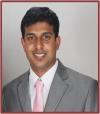Tremors, Can Be Self-induced By Touching Chest, Happens In Semi-slouched Position. Had Rotator Cup Operation

years. But these are getting worse and more frequent. She is very weak
after having them.They last a few seconds to 10 minutes.
She just discovered that she can self-induce this reaction by touching a certain place on her chest. And when we try to analyze when these naturally occur, it seems
that most of the time it is when she is in a semi sloughed position (her
posture being bent over). So when she is falling asleep in her easy chair or
propped up in her bed with pillows perhaps she is pinching this nerve/muscle
that is creating this effect.
Many years ago, she had an operation on her rotator cup. Perhaps it healed
incorrectly and caused some problem in that area?
Thanks for the query
From the clinical descriptions and the video provided to me it looks like she is suffering from reflex myoclonus. Reflex myoclonus is often triggered by external stimuli which can be either focal or generalized stimuli. In her the Intercostal nerve (peripheral nerve) in the left side of the chest is getting stimulated by touch or movement which is transmitted through the spinal cord to the brain stem and cortex causing axial (trunk) myoclonus which makes her loose balance and sometime can result in a fall if it is massive.
Psychogenic myoclonus is the other differential I would like to consider in some one where the trigger is very focal like touching the left chest. Odd for this is the occurence of the myoclonus in sleep or resting stage.
My recommendation for you is to see your Neurologist for a good physical examination and consultation to look for reasons of myoclonus and the cause for recent worsening. I feel probably she had a mild form of reflex myoclonus earlier & the recent worsening could be psychological. If it is causing problems like loosing balance and falls medications like Levetiracetam and Valproate would benefit her. Neurophysiological studies like EMG, EEG, and back-averaging EEG-EMG can help sometimes to differentiate reflex from psychological myoclonus.
I thank you again for submitting your question. I hope you have found my response to be helpful. If you have additional concerns I would be happy to discuss them with you.
Sincerely,
Dr Shiva Kumar R
Consultant Neurologist & Epileptologist.
Answered by

Get personalised answers from verified doctor in minutes across 80+ specialties



